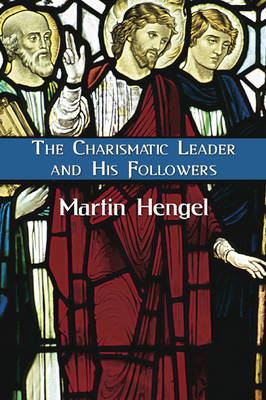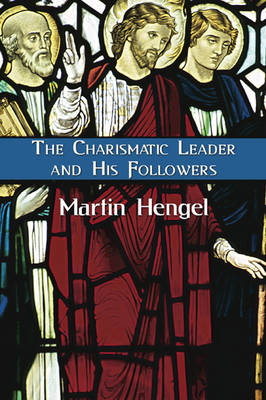
Je cadeautjes zeker op tijd in huis hebben voor de feestdagen? Kom langs in onze winkels en vind het perfecte geschenk!
- Afhalen na 1 uur in een winkel met voorraad
- Gratis thuislevering in België vanaf € 30
- Ruim aanbod met 7 miljoen producten
Je cadeautjes zeker op tijd in huis hebben voor de feestdagen? Kom langs in onze winkels en vind het perfecte geschenk!
- Afhalen na 1 uur in een winkel met voorraad
- Gratis thuislevering in België vanaf € 30
- Ruim aanbod met 7 miljoen producten
Zoeken
Omschrijving
Taking as his starting-point Jesus' saying in Matt 8:22, ""Let the dead bury the dead,"" Professor Hengel subjects Jesus' discipleship sayings to a rigorous historical scrutiny. The sharp break with contemporary Jewish mores in Matt 8:22 leads Hengel to a consideration of other contemporary forms of discipleship -- Cynic, Rabbinic, and Zealot. Rejecting the view that Jesus was some kind of rabbi, Hengel argues that there are, despite the obvious fundamental differences, closer similarities between Jesus and the charismatic-prophetic leaders of the Maccabean-Zealot tradition. Both his call to leave all and go after him and his freedom and authority over against the Law place him closer to the Zealots than to the scribes and their disciples whose relationship was foremost that of teacher and pupil. Thus Professor Hengel's magisterial command of Jewish and Hellenistic first-century material is here brought to bear on the figure of Jesus and we are given a remarkable series of historical insights into the character of Jesus' ministry and his work with his disciples. What emerges is a picture of Jesus fully as a man of his time but one whose authority is unique and whose call to share his fate in the service of the imminent Kingdom is without equivalent among his contemporaries. It is Professor Hengel's belief that the way to a proper understanding of Jesus' teaching can be only through the detailed critical study of the whole body of the synoptic sayings and pericopae. What he offers here takes its starting point in only one such pericope; yet the flood of light that this study sheds on Jesus' teaching and life is such that this book stands as one of the most important contributions to the continuing enquiry into the historical Jesus.
Specificaties
Betrokkenen
- Auteur(s):
- Vertaler(s):
- Uitgeverij:
Inhoud
- Aantal bladzijden:
- 120
- Taal:
- Engels
Eigenschappen
- Productcode (EAN):
- 9781597520775
- Verschijningsdatum:
- 28/01/2005
- Uitvoering:
- Paperback
- Formaat:
- Trade paperback (VS)
- Afmetingen:
- 142 mm x 216 mm
- Gewicht:
- 167 g

Alleen bij Standaard Boekhandel
+ 41 punten op je klantenkaart van Standaard Boekhandel
Beoordelingen
We publiceren alleen reviews die voldoen aan de voorwaarden voor reviews. Bekijk onze voorwaarden voor reviews.









